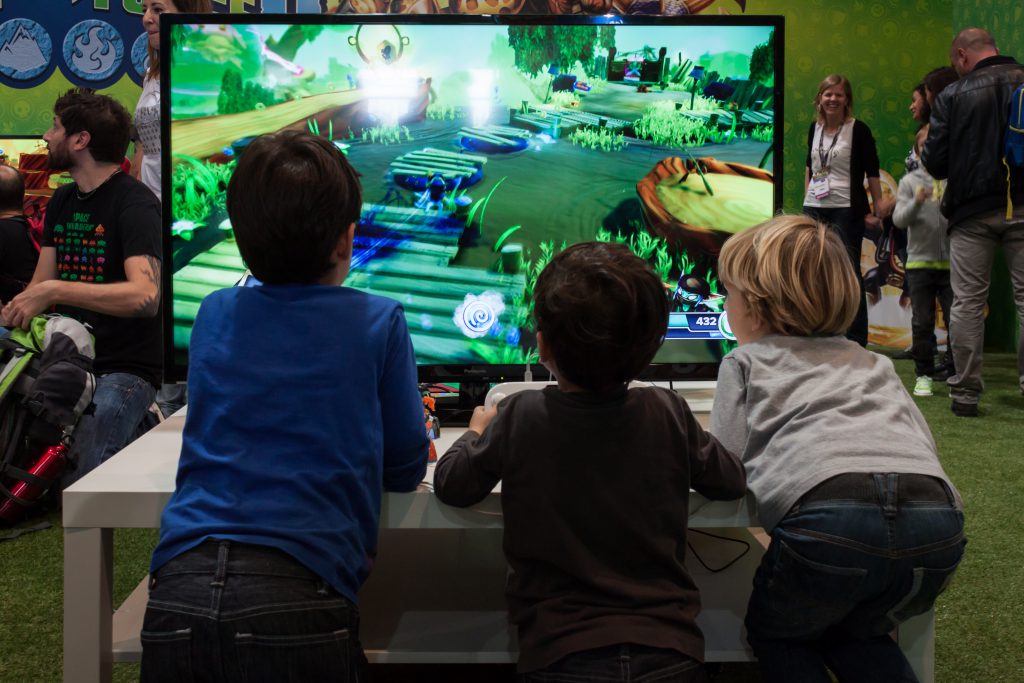Contributors
The reality of video games is far from the all-too-common perspective that views them as brain-melting garbage. Video games and Esports offer a host of benefits that are not explored in media and news nearly as frequently as they deserve to be.
The Social Connection
The biggest misconception about video games is that gamers are antisocial. What is your image of a gamer? Maybe a 20-something-year-old still living in his parent’s basement, chugging Red Bull, with Dorito dust all over his hands and keyboard.
Decades of bad press from advertisements, media, and pop culture have implanted that picture in many people’s brains. As a result, parents today worry that buying their children an XBOX is a slippery slope leading their children to social isolation. Luckily the reality is far from this pessimistic fantasy.

In today’s world games are played online, with friends, real friends. Gaming has become far more social and as a result, games are driving players, (especially youngsters) towards social connection rather than away from it. In these games, Children are building social skills just as they would be by playing in the real world.
For anyone who doesn’t play video games themselves, here’s a common scenario, kids will run into while playing together. In Minecraft, a sandbox-type video game that allows great creativity for players, there is a special dimension that players can only reach by building a portal. This portal requires different materials, and the players will need materials to survive in the new dimension.
Let’s say three kids are playing together. They will need to communicate and coordinate with each other: who is gathering the obsidian, who is getting the lava, and who is creating the armor and weapons they need. Then they need to decide on a meeting position where they will come back to build the portal itself.
This relatively simple aspect of the game reinforces several communication lessons that are invaluable in the real world. The benefit of video games is having children learn these skills in a fun and engaging way. You aren’t going to have to force your child to play Minecraft, and they won’t even realize that they are developing crucial real-world communication skills.
Sense of Competition
Video games are an easy way to get kids competing in sports. There are many competitions available to children, whether it be an organized youth sports league or just a game of soccer. Regardless of where they are getting it, competition is an important part of a child’s development. Competition teaches many important sportsmanship lessons. Mainly, how to win and how to lose.
Working to achieve goals
Video games can teach children to set and reach goals, and it goes far beyond completing the next level. These Games (specifically competitive video games) are a fantastic way to teach children the effectiveness of goal setting. Skill-based games offer endless room for improvement, as well as many systems of measurement.
With this simple goal, the direction of the child’s play is headed in a purposeful direction. Just as a teenager aiming to make their high school basketball team, this child will now have to train, compete, and track their progress.
Creating Careers
An unknown fact is – the video game industry is bigger than the global movie industry and North American Sports industries combined. As a result, there are tens of thousands if not hundreds of thousands of jobs in the video game industry.
These careers include content creators, game designers, and broadcast announcers but also range into more traditional business roles. Landing a marketing or business development job in the industry is exponentially easier when you have a background in playing or competing in video games.

Even outside of the video game industry itself, common video game principles and mechanics are being implemented throughout all kinds of products. “Gamification” has become a common practice in all kinds of applications from social media to education and all of that is without even mentioning the Metaverse.
Creating products that engage audiences is a lucrative skill all companies are looking for. Duolingo, the language learning app, gives points to users every time they answer a question. This is a textbook example of gamification! The points encourage users to keep coming back and continue to work on learning a new language.
Having children develop an understanding of games at an early age, can help them become the future designers of incredible products that help change the world for the better.
In Conclusion
This article merely scratches the surface of the many benefits of video games. If you’re the kind of parent who stays awake at night worrying if your child is going to rot their eyes and brain staring at a screen all day, fear not. Playing video games will not ruin your child’s life. It’s likely going to benefit them in ways you’ve never imagined.
Or Briga is a contributor, a veteran gamer, Forbes 30U30 alum, and the CEO & Co-founder of NOVOS.gg, an online training platform for gamers who wish to take their gaming skills to the next level.
Forbes Israel Contributors are independent writers that were individually picked by Forbes staff. The writers are experts in their field and they provide professional commentary and analysis of current events. The Contributor’s content isn’t sponsored.





